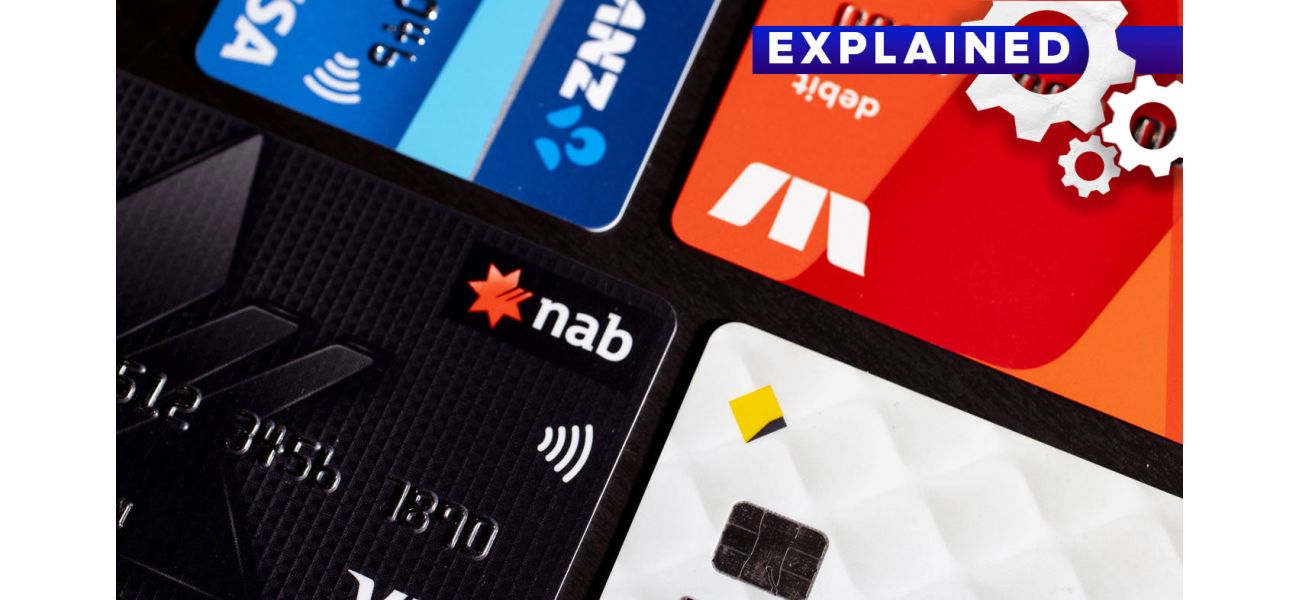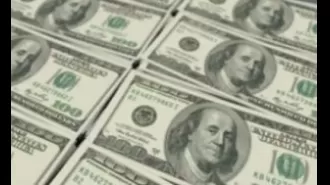Big changes coming to shopping in Australia with a $960 million crackdown.
Why do fees exist if they cost shoppers so much money?
October 19th 2024.

The Australian government has made a promise to take action against the surcharges that Australians often face when using their debit or credit cards for purchases. This has been a major concern for shoppers, as these fees add up to hundreds of millions of dollars every year. So, what exactly is the reason behind these surcharges and what changes can we expect to see in the future? Here's all the information you need to know.
Firstly, let's understand what card surcharges are and why businesses charge them. These fees are typically a small percentage, ranging from 0.5 to 1.5%, that are added to the total cost of a purchase made through credit or debit cards. This is because businesses incur a cost for accepting these forms of payment, as providers like Visa, Mastercard, and Square charge them a fee. Under Australian consumer law, businesses are allowed to apply a surcharge to cover these costs, but it cannot exceed the amount they are charged. For example, if a cafe is charged 0.5% for processing a card payment, they cannot charge a surcharge higher than that.
The main reason for the push to get rid of these surcharges is the cost. As more and more people are using cards instead of cash, the number of transactions subject to surcharges is also increasing. According to an ABC analysis, Australians are paying around $960 million annually in card surcharges, which is a significant amount in today's cost-of-living crisis. Choice head of policy, Tom Abourizk, believes that there should be a fair and free way for consumers to pay with their own money, whether it's through cash or debit card. He also points out that these surcharges add up to a significant amount for consumers, despite Australia having a low-cost eftpos network that can bypass fees from major card companies.
The government has also acknowledged this issue and announced plans to scrap surcharges for debit card payments. This move is expected to save Australians approximately $500 million per year. However, credit card payments will still be subject to surcharges. These changes are set to come into effect on January 1, 2026, as the government is waiting for a Reserve Bank review to ensure that small businesses and consumers are not negatively impacted by the changes. RMIT finance professor Dr Angel Zhong also believes that it is crucial to find an optimal balance to support businesses, as they may have to bear extra costs to maintain payment machines.
It is worth mentioning that other countries, such as the UK, European Union, and Malaysia, have already banned card surcharges. The United States and Canada have also made debit card surcharges illegal, but credit card fees are still allowed. So, it is not a new concept, and many countries have successfully implemented similar measures to protect consumers from excessive fees.
In conclusion, the Australian government is taking steps to tackle the issue of card surcharges, and we can expect to see some significant changes in the near future. With the ban on debit card surcharges and stricter monitoring of other fees, consumers can look forward to a fair and transparent payment system. It's a positive move towards reducing the financial burden on families and ensuring a level playing field for businesses of all sizes.
Firstly, let's understand what card surcharges are and why businesses charge them. These fees are typically a small percentage, ranging from 0.5 to 1.5%, that are added to the total cost of a purchase made through credit or debit cards. This is because businesses incur a cost for accepting these forms of payment, as providers like Visa, Mastercard, and Square charge them a fee. Under Australian consumer law, businesses are allowed to apply a surcharge to cover these costs, but it cannot exceed the amount they are charged. For example, if a cafe is charged 0.5% for processing a card payment, they cannot charge a surcharge higher than that.
The main reason for the push to get rid of these surcharges is the cost. As more and more people are using cards instead of cash, the number of transactions subject to surcharges is also increasing. According to an ABC analysis, Australians are paying around $960 million annually in card surcharges, which is a significant amount in today's cost-of-living crisis. Choice head of policy, Tom Abourizk, believes that there should be a fair and free way for consumers to pay with their own money, whether it's through cash or debit card. He also points out that these surcharges add up to a significant amount for consumers, despite Australia having a low-cost eftpos network that can bypass fees from major card companies.
The government has also acknowledged this issue and announced plans to scrap surcharges for debit card payments. This move is expected to save Australians approximately $500 million per year. However, credit card payments will still be subject to surcharges. These changes are set to come into effect on January 1, 2026, as the government is waiting for a Reserve Bank review to ensure that small businesses and consumers are not negatively impacted by the changes. RMIT finance professor Dr Angel Zhong also believes that it is crucial to find an optimal balance to support businesses, as they may have to bear extra costs to maintain payment machines.
It is worth mentioning that other countries, such as the UK, European Union, and Malaysia, have already banned card surcharges. The United States and Canada have also made debit card surcharges illegal, but credit card fees are still allowed. So, it is not a new concept, and many countries have successfully implemented similar measures to protect consumers from excessive fees.
In conclusion, the Australian government is taking steps to tackle the issue of card surcharges, and we can expect to see some significant changes in the near future. With the ban on debit card surcharges and stricter monitoring of other fees, consumers can look forward to a fair and transparent payment system. It's a positive move towards reducing the financial burden on families and ensuring a level playing field for businesses of all sizes.
[This article has been trending online recently and has been generated with AI. Your feed is customized.]
[Generative AI is experimental.]
0
0
Submit Comment





